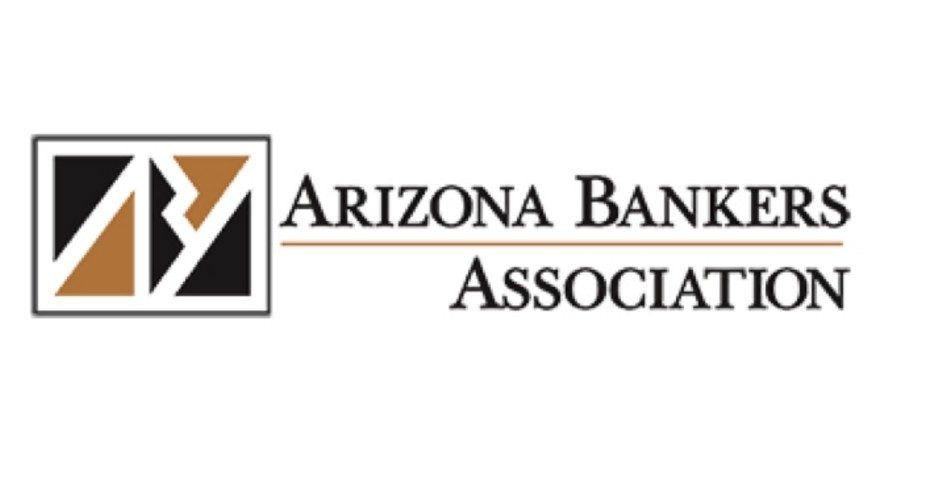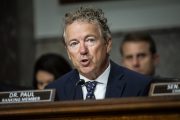
Local bankers are joining together to fight Kentucky Senator Rand Paul’s “Audit the Fed” legislation. The bill, which would allow increased congressional scrutiny of the U.S. Federal Reserve’s policy decisions, has already compelled the Fed to conduct political outreach efforts and is expected to provoke even stronger lobbying efforts against it if it were to gain momentum.
Paul re-introduced the Audit the Fed bill in January, while a similar Fed audit bill passed the House of Representatives late last year. Paul’s legislation would not simply institute a full audit of the Federal Reserve, but also would provide Congress oversight of Federal Reserve policies, including quantitative easing (the process of creating vast quantities of money).
Reuters provides some background on the controversy behind the audit: “The Fed is subject to various audits, including reviews by the Government Accountability Office (GAO). But since 1978, its monetary policy discussions have been legally exempt from a GAO audit. Some politicians say it is time to open up those deliberations to more public scrutiny.”
Critics of the Federal Reserve have long called for the entity to be more heavily scrutinized, while others have demanded that it be eliminated altogether.
The Federal Reserve was created in secrecy more than 100 years ago. Despite its misleading name, it is an independent non-governmental organization consisting of a board of governors and 12 regional banks, and serves as a lender to the country’s banking system. The alleged purpose of the entity is to fight inflation and promote economic growth, but critics have observed the group’s many failures in fulfilling those functions. In fact, inflation, following its historic definition, is the printing of money, which leads to increases in the price of consumer goods (basically quantitative easing, in a nutshell).
The 2008 financial collapse has prompted the movement to audit the Fed to gain some momentum, with lawmakers now asking to look more closely at the decisions the Federal Reserve has made over the years.
Senator Paul hosted a Facebook-based question-and-answer period on the Audit the Fed bill last week that received hundreds of comments. His post introducing his Facebook Townhall on the Audit the Fed bill received over 5,500 likes.
That momentum is not being well received by the banking community, however. Reuter’s survey of 24 banking groups shows that four are actively opposed to an audit of the Federal Reserve while five more state they would probably stand against it if it were to gain more support.
In the week’s following Paul’s re-introduction of the Audit the Fed bill, Fed officials met in private with staffers from both parties, with a primary focus on the Senate, reports The Hill.
Fed Chair Janet Yellen told reporters in December that she would “forcefully” fight against the proposal to audit the Fed. “I do think central bank independence is very important … to make sure we can make the decisions we think are best,” she told reporters.
Both Yellen and her predecessor, Ben Bernanke, have openly criticized proposals to audit the Fed, warning it could subject the Fed to undue political pressure. “The ability of the central bank to make the decisions about monetary policy that it regards as in the best longer run interests of the economy free of short run political interference is very important,” Yellen said. “History shows, not only in the United States but around the world, that central bank independence promotes better economic performance.”
For some, the Fed’s actions and outspoken resistance to an audit indicate fear. And logically so, for it is arguable that the Fed, which is a cartel of big banks, does what is in the interests of large banks, not what is in the interest of run-of-the-mill Americans.
“It almost seems like they’re running scared,” said Vern McKinley, an attorney who advises governments on central banking policies and has worked with the Fed and the Treasury Department. “It’s beneath them to be doing this lobbying.” McKinley is calling the Fed’s recent political outreach efforts “surprising” and “unseemly.”
Paul spokesman Brian Darling articulated similar sentiments. “Clearly the Federal Reserve fears the information that may be disclosed as part of an audit,” he said. “Maybe they fear that the revolving door between the Wall Street and the Federal Reserve will be exposed. Or maybe they worry about the revolving door between the Department of Treasury and the Fed.”
He continued, “The Fed has been very active in the public domain in lobbying against the idea of an independent Federal Reserve audit and I have to assume they are reaching out to friends in the House and Senate to stop it.”
Opposition efforts against Paul’s measure are not limited to the Fed’s top officials. Theresa Kleinlein, spokeswoman for the Arizona Bankers Association, has stated that the Association does not support Paul’s bill, and does not expect it to “move very far.” Similarly, the Iowa Bankers Association has announced its opposition. Banking groups in Texas, Tennessee, Massachusetts, Virginia, and Arkansas have also said they opposed the bill but were skeptical that it would progress.
According to Reuters, the Ohio Bankers League is sending 82 members to Washington this week with the bill on its agenda, highlighting the fact that even as banks of all sizes complain about restrictive Fed regulations, they support its ability to independently set monetary policy. “We feel the current system works well, it’s time-tested, and there are all kinds of reasons why political influence at the Fed is a bad thing,” said Bob Lameier, president of the Ohio group and head of Miami Savings Bank in Miamitown, near Cincinnati.
Critics contend, however, that it is that independence that has wreaked havoc on the economy. For example, the Federal Reserve’s quantitative easing programs have resulted in the addition of trillions of dollars to the national debt. These programs have served to devalue the dollar, eroding its purchasing power and increasing inflation.
As long as Democrats maintained control of the Senate, legislation targeting the Federal Reserve has been unsuccessful; but with Republicans now in charge of both the House and the Senate, an audit-the-Fed bill certainly has a better chance.
This week, Yellen will testify before the Senate Banking, Housing and Urban Affairs Committee. And Reuters reports that Committee Chair Richard Shelby is expected to call a committee hearing on the transparency of the Federal Reserve in the next few weeks, according to someone familiar with the matter.
But the banking community is highly influential in Washington. The Center for Responsive Politics shows that the Independent Community Bankers of America, the industry’s trade group, gave $1.3 million in political contributions in the 2013-2014 campaign cycle.
And some believe that Paul’s focus on the Fed may hurt his chances for the 2016 presidential seat. Politico writes, “The thinking in these circles is that should Paul emerge as a viable threat to get the nomination, an even larger outpouring of money and organizational muscle will be deployed to stop him, in large part out of fear of what a President Paul might do to the Fed.”
Political analysts contend that fears that Paul may emerge as a potential nominee in 2016 is driving the influx of Wall Street money to Jeb Bush, and to some extent to Governors Chris Christie of New Jersey and Scott Walker of Wisconsin. “If he comes out of Iowa or begins to emerge with any kind of strength, I think you will see the GOP establishment go on red alert because they are going to view him as a dangerous person,” said one financial services industry executive who did not want to be quoted on record criticizing Paul. “The Fed is the pre-eminent central bank on the planet and no one wants to put that at risk.”




